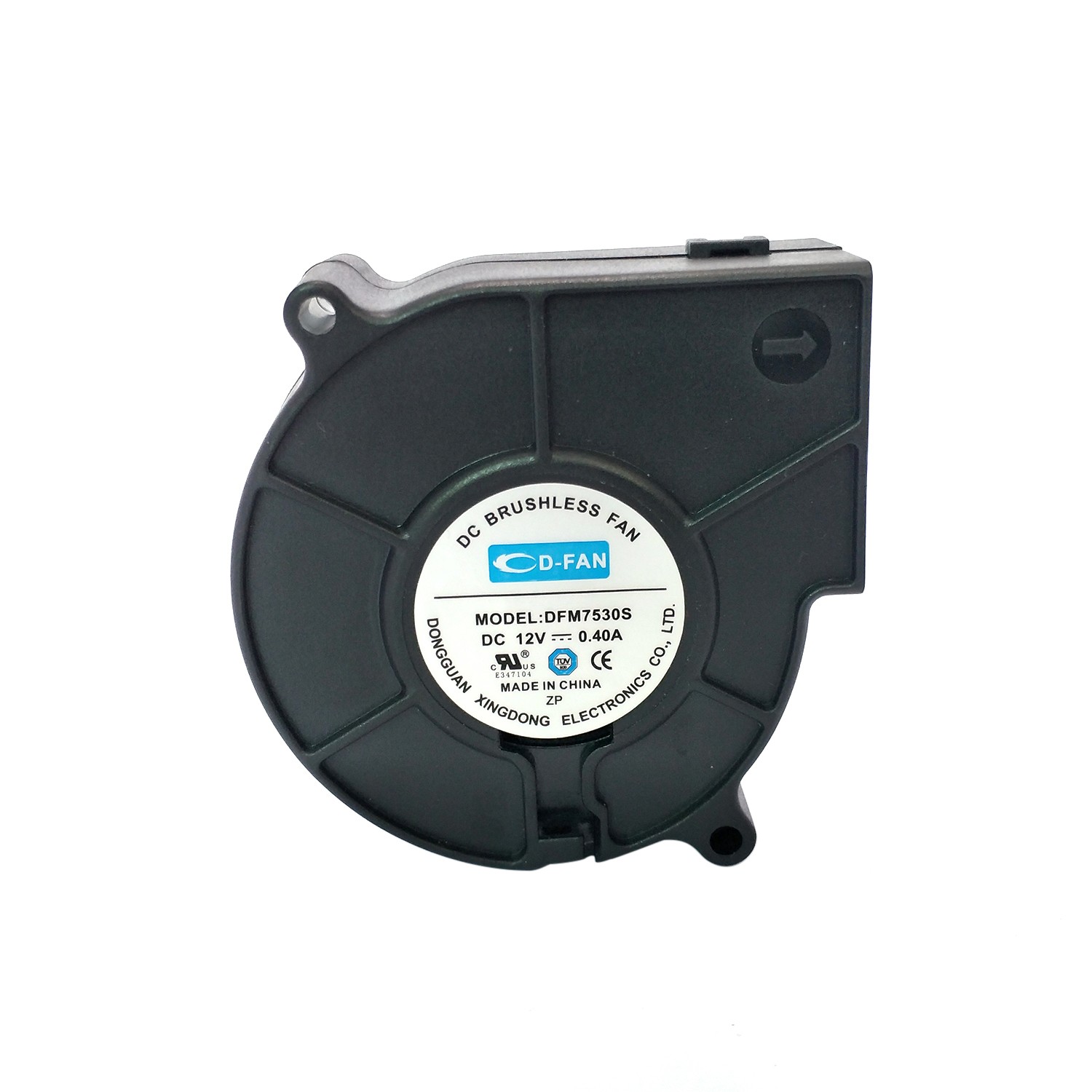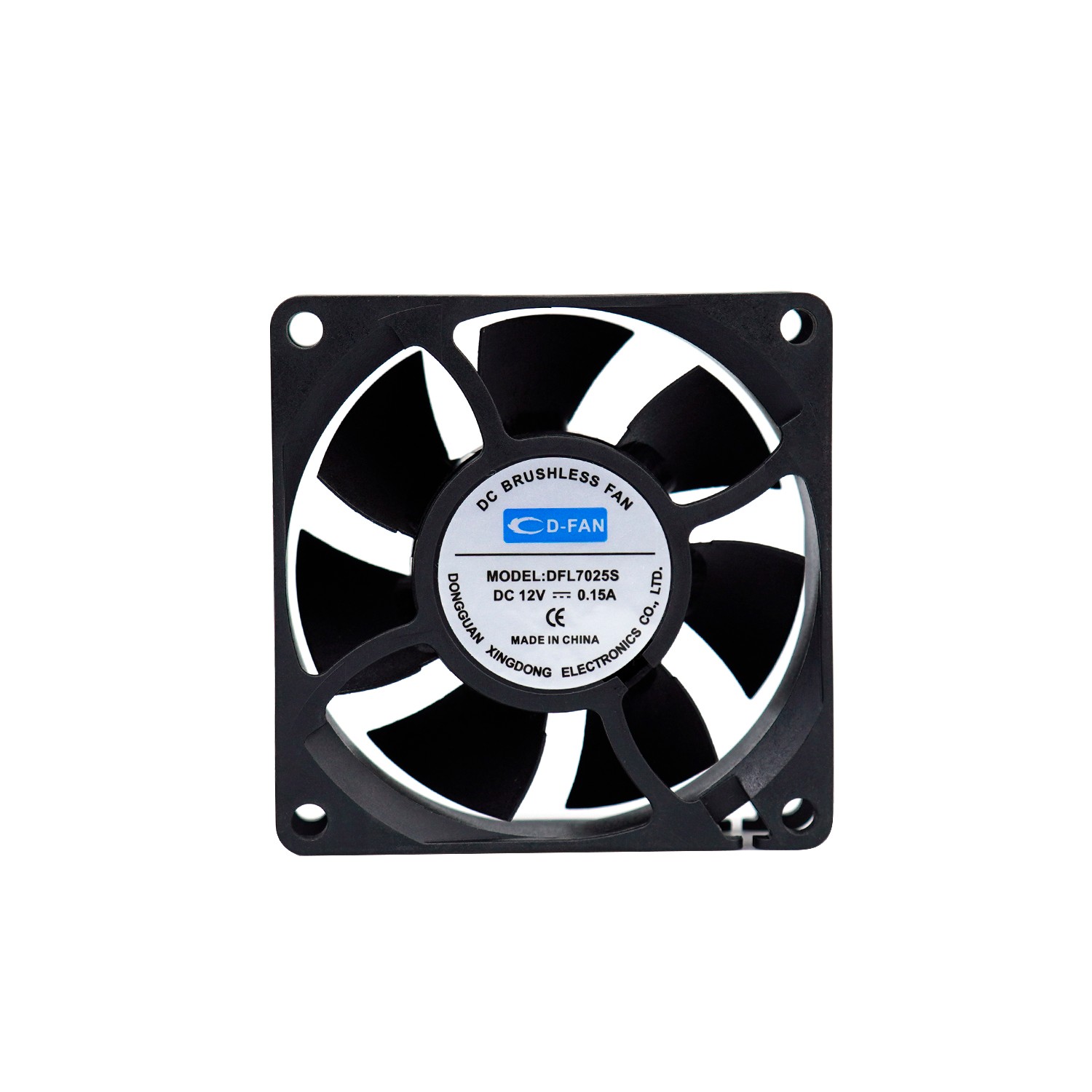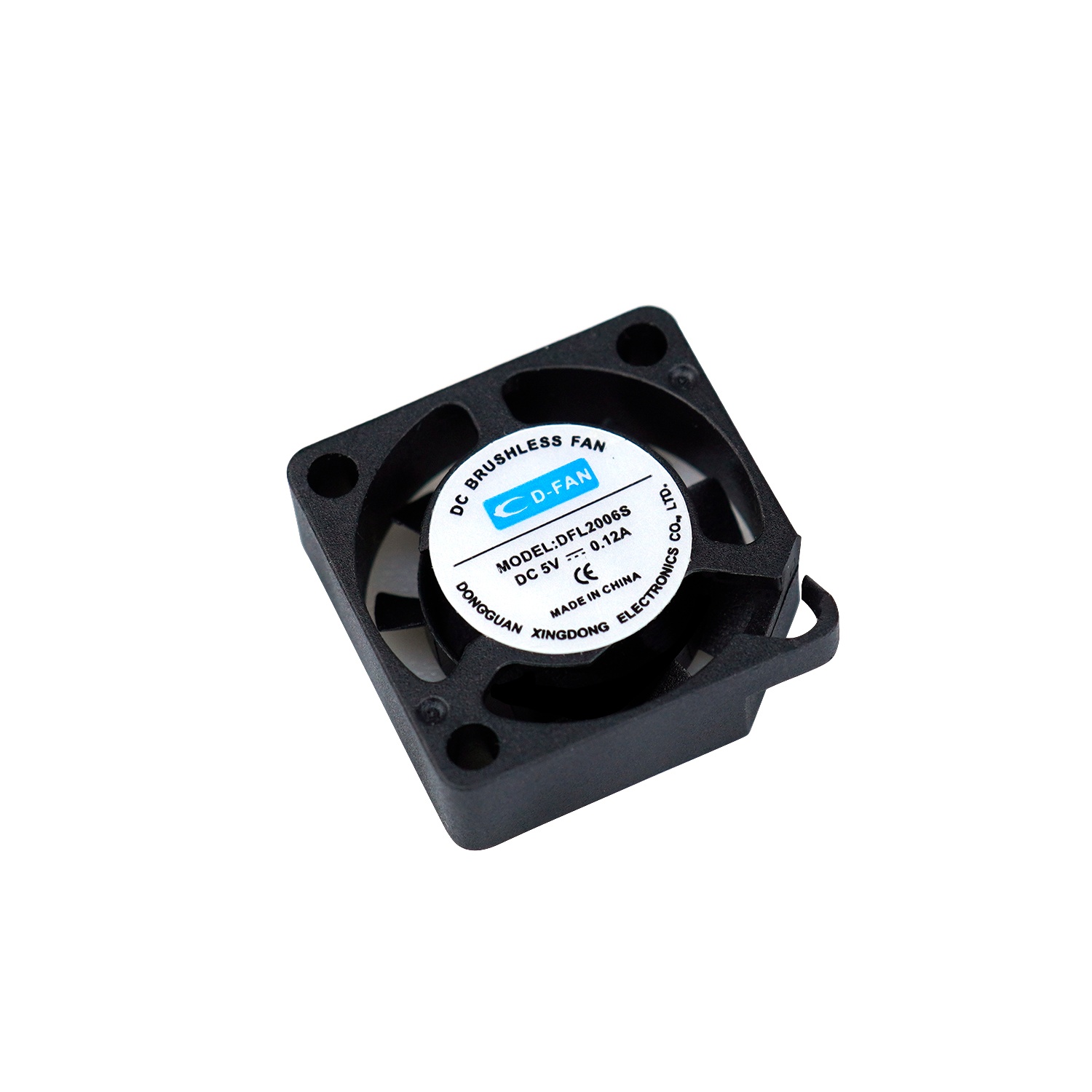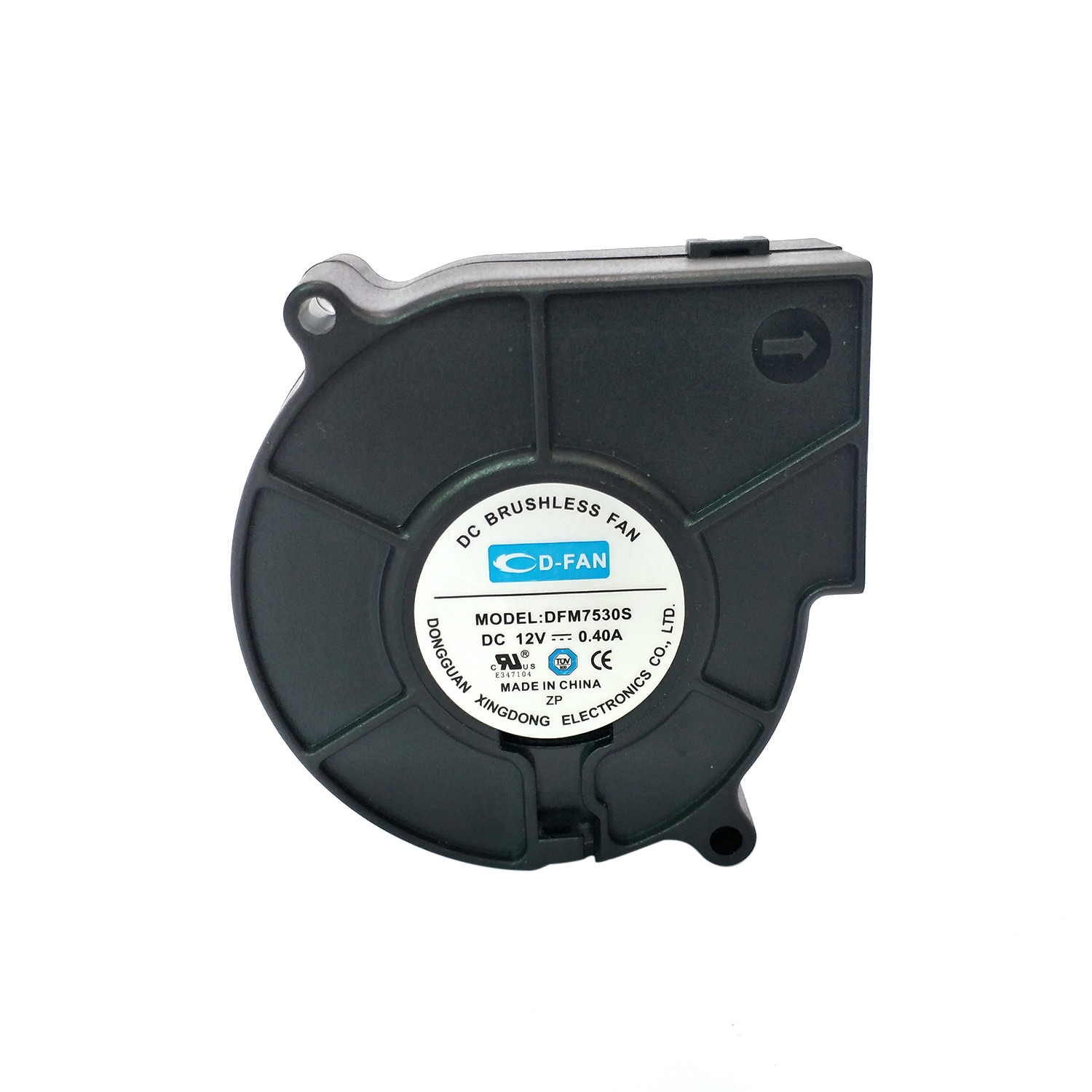序章
In the realm of air circulation and ventilation, the 75mm centrifugal fan emerges as a stalwart player, its significance resonating both in industrial and residential settings. This article embarks on a detailed journey to elucidate the intricacies of this compact yet pivotal mechanical marvel.

The Anatomy of a 75mm Centrifugal Fan
Impeller Design
At the heart of every 75mm centrifugal fan lies its impeller – a meticulously engineered component designed to harness the power of centrifugal force. These impellers often sport intricately contoured blades, engineered to optimize airflow efficiency while minimizing turbulence.
Housing and Inlet Configuration
The housing surrounding the impeller is no less critical. The configuration of the housing, including the curvature of its walls and the size and shape of the inlet, profoundly influences the fan’s performance. Precision engineering in this aspect ensures optimal air intake and discharge.
Motor and Bearings
Behind the scenes, the motor and bearings are the unsung heroes, enabling the impeller to rotate with precision. Bearings, in particular, warrant attention for their role in reducing friction and thus extending the fan’s lifespan.
Operating Principles
Centrifugal Force Generation
The centrifugal fan’s namesake is no mere moniker; it defines the very essence of its operation. Centrifugal fans rely on the generation of centrifugal force to propel air outward, making them exceptionally proficient at delivering high-pressure airflow.
Airflow Characteristics
Understanding the airflow characteristics is pivotal. Centrifugal fans produce a more directed and pressurized airflow compared to their axial counterparts, making them suitable for applications requiring precise control over air distribution.
Speed Control Mechanisms
The ability to modulate fan speed provides another layer of versatility. Variable frequency drives (VFDs) and pulse-width modulation (PWM) controllers are commonly employed, affording precise control over airflow rates.
Applications Across Industries
HVAC Systems
Within HVAC systems, 75mm centrifugal fans are often found optimizing air circulation in heating, cooling, and ventilation processes, where consistent airflow and pressure are paramount.
Electronics Cooling
In the world of electronics, precise thermal management is crucial. These fans find their niche in cooling sensitive electronic components, ensuring their longevity and reliability.
Aerospace and Automotive
Aerospace and automotive industries rely on 75mm centrifugal fans for avionics cooling and engine compartment ventilation, where space constraints and performance demands meet.
Manufacturing Processes
Industrial manufacturing often calls for tailored solutions, and these fans step up to the plate in processes requiring controlled airflow for product quality and worker safety.
Efficiency and Energy Considerations
Importance of Proper Sizing
Selecting the right-sized fan is a critical consideration. Oversized fans can result in unnecessary energy consumption, while undersized ones may fail to deliver the required performance.
Energy-efficient Designs
In the age of sustainability, energy efficiency is king. Manufacturers are continuously innovating, producing fans that offer optimal performance while conserving energy.
Noise Reduction Strategies
Noise pollution can be a significant concern. Fan manufacturers integrate noise reduction features, such as acoustically insulated housings and blade designs, to mitigate this issue.
Selection Criteria
Flow Rate Requirements
Selecting a 75mm centrifugal fan hinges on understanding the specific flow rate requirements of the application, ensuring that the fan can meet the demands effectively.
Pressure Requirements
Pressure requirements vary across applications. Properly assessing these requirements ensures that the fan can maintain adequate airflow against resistance.
Temperature Considerations
In high-temperature environments, fan components must withstand the heat. Material selection and cooling mechanisms are critical factors to consider.
Installation and Maintenance
Proper Mounting Techniques
Improper installation can compromise performance and longevity. Knowledge of proper mounting techniques is essential to harness the fan’s full potential.
Cleaning and Lubrication
Regular maintenance includes cleaning and lubricating the fan’s moving parts, which can significantly extend its operational life.
Troubleshooting Common Issues
From vibrations to electrical faults, understanding and troubleshooting common fan issues is essential for uninterrupted operation.
Advancements in 75mm Centrifugal Fan Technology
Materials and Manufacturing
Advancements in materials and manufacturing techniques continually enhance fan performance, durability, and efficiency.
Smart and IoT Integration
The integration of smart technology and the Internet of Things (IoT) allows for remote monitoring and control, adding a layer of convenience and efficiency.
Future Trends
Exploring future trends, including enhanced automation, energy recovery systems, and quieter operation, paints a promising picture for the evolution of these fans.
Comparing Centrifugal Fans: 75mm vs. Others
Axial Fans
Contrasting 75mm centrifugal fans with axial fans unveils the strengths and weaknesses of each, aiding in informed fan selection.
Radial Fans
A comparative analysis with radial fans highlights the unique advantages that centrifugal fans bring to the table.
Regulatory Standards and Compliance
Safety and Environmental Regulations
Compliance with safety and environmental regulations is non-negotiable. Familiarity with industry standards ensures fan installations meet legal and ethical requirements.
Certification Bodies
Various certification bodies evaluate and certify fan products, serving as a reliable marker of quality and adherence to standards.
結論
In conclusion, the 75mm centrifugal fan, often overshadowed by its larger counterparts, emerges as a highly versatile and indispensable component in myriad applications. As technology advances and industries evolve, the role of these fans continues to expand, ensuring a breath of fresh air in the world of air circulation and ventilation.
<
p style=”margin: 0 auto 10px;text-align: center;border-bottom: 1px solid #dedede;padding-bottom: 10px;font-size: 20px;”>Related Products






